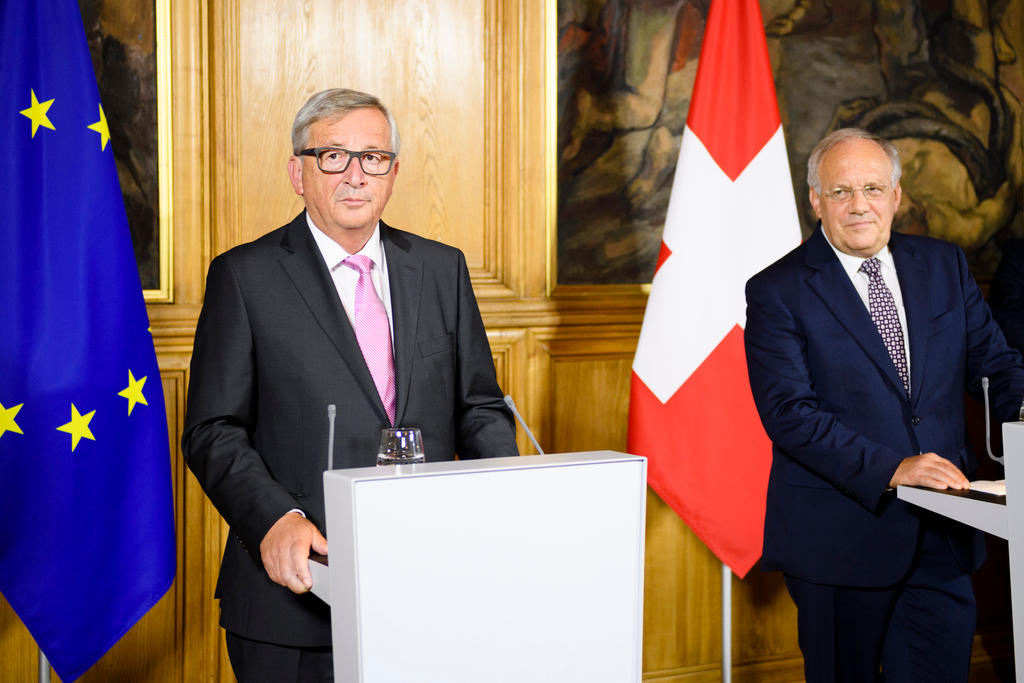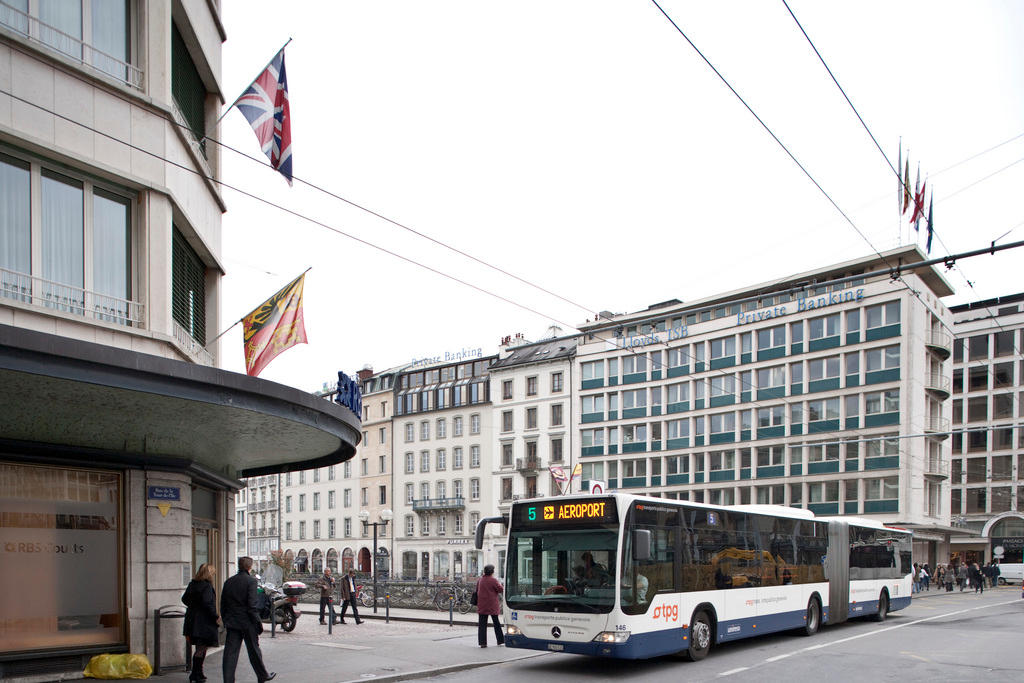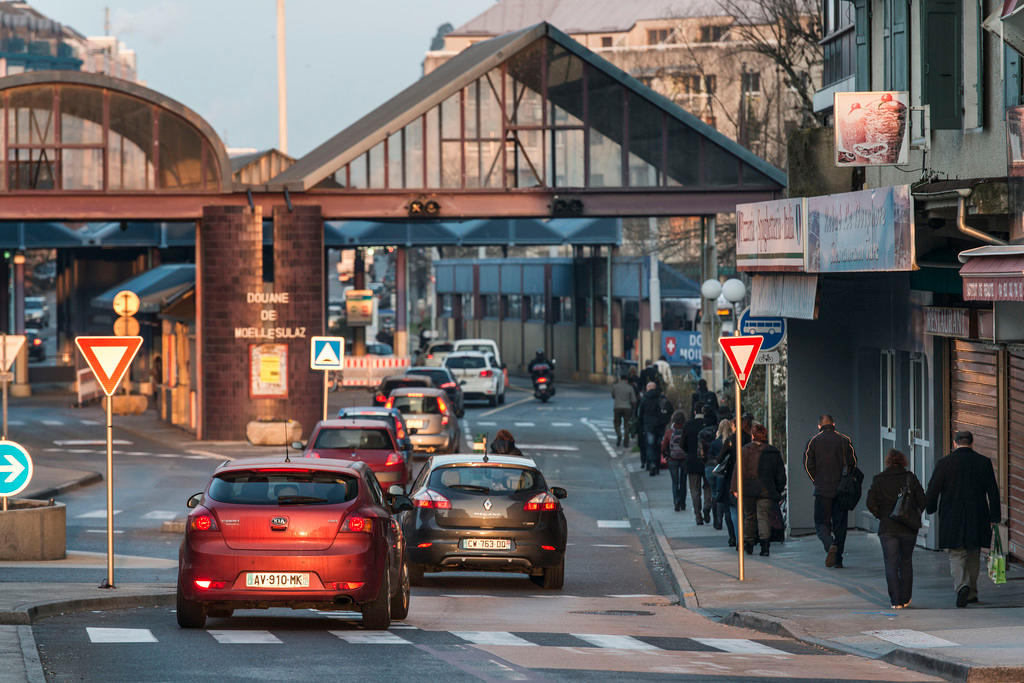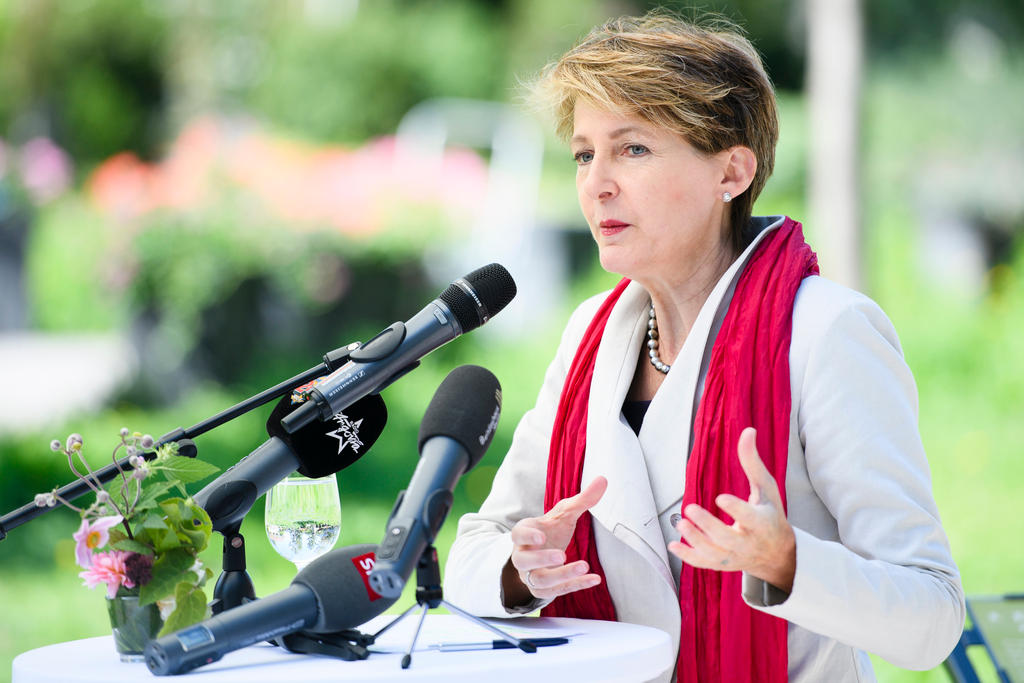Brussels fears Swiss plan could discriminate EU citizens

The European Union is concerned that the Swiss government’s plan to favour Swiss jobseekers over non-Swiss ones, approved by the House of Representatives last month, could discriminate against some European citizens.
That was the message from Mario Gattiker, head of the State Secretariat for Migration, who attended a special meeting in Brussels on Tuesday, called by Brussels to learn more about how Switzerland planned to implement an initiative which called for limits to EU immigration.
Gattiker emphasised that he was not in Brussels to negotiate – “only to inform”. The EU representatives asked questions and spoke their mind, he said.
What he was explaining was a strategy, “local preference light”, which encourages employers to hire Swiss over non-Swiss by, for example, requiring vacancies to be displayed in local job centres.
This is in response to an initiative put forward by the rightwing Swiss People’s Party to impose limits on the number of workers allowed into Switzerland from EU and EFTA countries. This was approved on February 9, 2014, by a narrow majority (50.3%) of Swiss voters. Parliament then had three years to implement this – in other words, by February 9, 2017.
The problem, as Brussels was quick to point out, is that curbing immigration in Switzerland would violate an agreement on the free movement of people, one of the EU’s central tenets, that Switzerland signed on to in 2002 as part of a package of bilateral accords.
With less than four months to go, “local preference light” is the closest the Swiss have come to a strategy, with the House of Representatives approving it last month. The Senate will have its say in December.
The People’s Party, however, is livid at the lack of quotas, saying the will of the people was being ignored and talking of the “death of democracy”.
EU concerns
But even if the Senate agrees to local preference, it’s not a given that the European Union will wave it through.
“The EU is afraid that certain conditions would mean discrimination of its European citizens,” Gattiker said on Tuesday. “I informed them of the House of Representative’s intention to find a solution that preserves the freedom of movement accord between Switzerland and the EU as well as possible.”
Two points in particular concerned the EU lawyers at the special meeting. First, the definition of “local”: although the Swiss have already said that means anyone with a Swiss residence permit, the EU is worried that the preferential treatment would apply only to Swiss nationals.
Second, the EU isn’t happy that, according to the proposal agreed by the House of Representatives, the cabinet alone would be able to decide unilateral measures regarding the distribution of labour if it thought these did not violate the freedom of movement.
For his part, Claude Maerten, representative of the European Commission, said Gattiker’s comments had been “extremely useful in giving a better understanding of the legislative proposal”.
Gattiker confirmed that the next step would be a telephone conversation “in the coming days” between Economics Minister Johann Schneider-Ammann, who holds the rotating Swiss presidency this year, and EU Commission President Jean-Claude Juncker.

In compliance with the JTI standards
More: SWI swissinfo.ch certified by the Journalism Trust Initiative




You can find an overview of ongoing debates with our journalists here. Please join us!
If you want to start a conversation about a topic raised in this article or want to report factual errors, email us at english@swissinfo.ch.